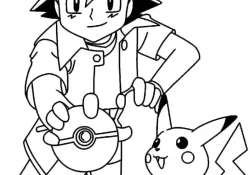After two months of inactivity, I'm getting back to writing. And I'm back with an article about Japanese. In this article, I want to address a subject that almost no one bothers to talk about: Translation. Not the broad translation, but the translations made from our language into Japanese.
Translation is something that takes a lot of work. for you to be a professional translator, you must have an advanced knowledge of the language you are translating into. to get an idea, translations from Spanish into Portuguese is already something that is sometimes complex because there are figurative expressions and the colloquial language is different from Portuguese, despite the language being similar.
From English to Portuguese is more difficult for the same reason. However, English is a very different language from Portuguese. Even more so because some figures of English language do not have an exact translation.
And in Japanese? Well, in Japanese it's even worse. In Japanese, the grammar is much more complex and the figure of speech does not have a certain translation. Some verbs work as adjectives in Japanese, the particles have several or a specific function and the translation into Portuguese or English is quite vague and can only be understood in literal translations.
A rough translation or an interpretation is used to understand what is being said/written in Japanese. To understand the syntax of sentences, you must use the translation literally. In fact, it's a good tip for those who are starting to learn Japanese: Translate everything literally.
At first, it's going to be weird. But this is a matter of adaptation. Japanese works in a totally different way from Portuguese. It's not just the word order that changes. É tudo.
Japanese translations are sometimes a headache
For starters, adjectives in Japanese work like verbs. Know the name of the website 好きです (Suki Desu)? Generally 好き is translated as "like" whereas in fact, 好き is an adjective in Japanese. When a Japanese says: "あなたが好き" (anata ga suki), the approximate translation would be "I like you" being that the 好き is being used to classify something or someone. 好き comes from 好きな (sukina) which would be "desirable" or "favorite" (there is no exact translation either) because the word 好き is an adjective な.
Another situation would be the use of the word 起きる (okiru) what would it be "get up" (after waking up). That same word also means "happen" (generally used in the context of unfavorable situations). 立つ (tatsu) would be used for "get up" (stand up).
That's why to understand the syntax behind the sentences, you shouldn't rely too much on the Portuguese translation. Obviously one must use the translation to know the meaning of the word. However, don't get too attached to that meaning as that may not be the only meaning. It is also good to study the actual use of the word in Japanese.





